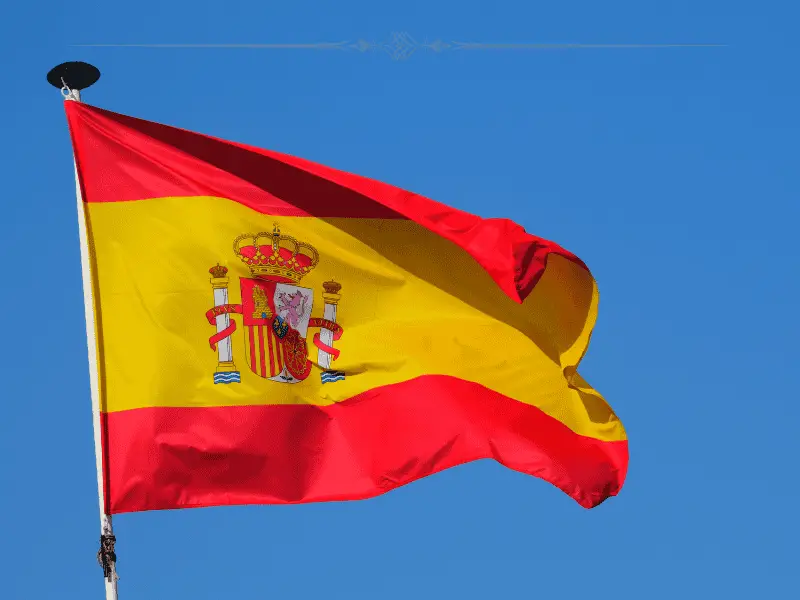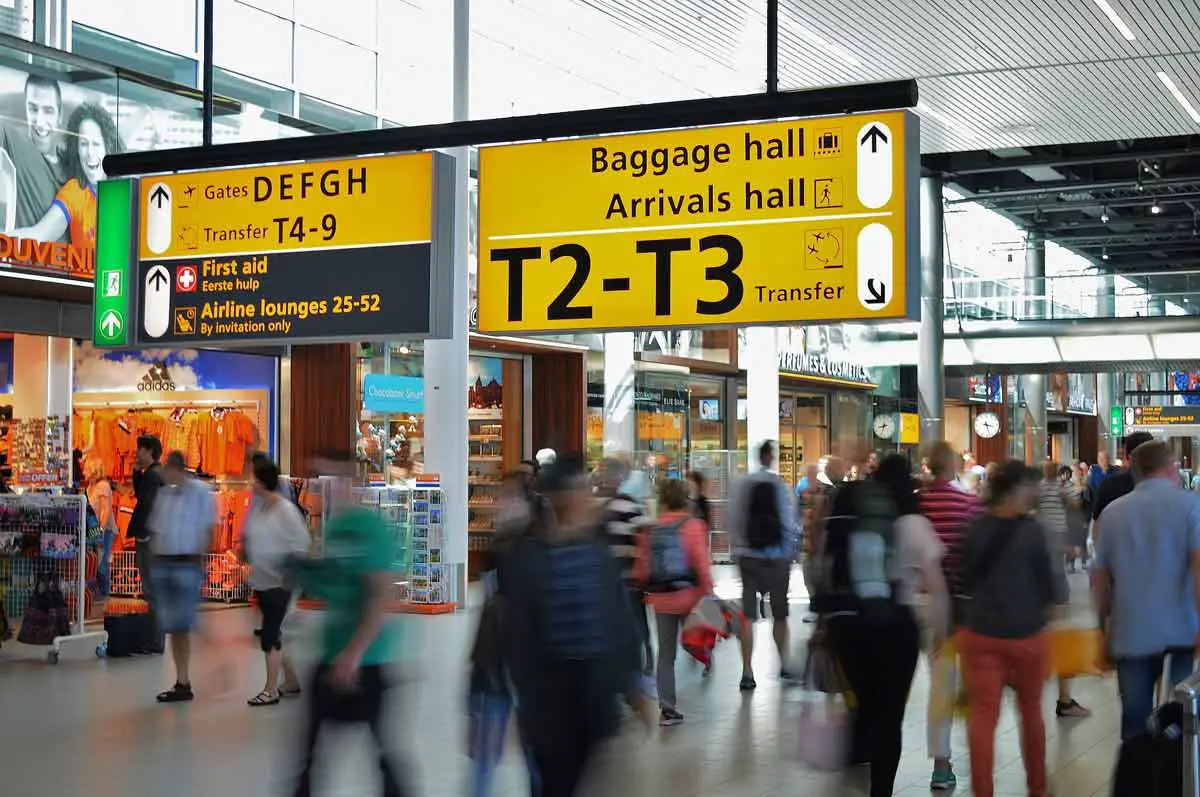A widespread power blackout has brought transportation systems across Spain and Portugal to a standstill, leaving hundreds of thousands of travelers stranded and causing unprecedented disruption across the Iberian Peninsula. The massive electrical failure, which struck around 12:30 PM local time, has affected everything from airports to high-speed rail networks, creating chaos for locals and tourists alike in two of Europe’s most popular vacation destinations.
Widespread Blackout Brings Travel to a Halt

The sudden power outage has affected nearly all transportation infrastructure across mainland Spain and Portugal, creating a ripple effect of cancellations and delays that has left travelers scrambling for alternatives. Traffic lights in major cities stopped functioning, underground metro systems ground to a halt with passengers trapped inside, and railway stations plunged into darkness as backup systems failed to engage properly.
While authorities continue to investigate the cause of this massive failure, initial reports indicate a catastrophic breakdown in the interconnected power grid serving both countries. The timing couldn’t be worse for the tourism-dependent economies, as the spring travel season was in full swing with approximately 500,000 British tourists currently in Spain and 70,000 in Portugal, according to industry estimates.
Aviation Chaos: Hundreds of Flights Affected
The impact on air travel has been severe, with approximately 200 flights canceled thus far, primarily affecting operations at Lisbon’s Humberto Delgado Airport. According to data from aviation analytics firm Cirium, more than 500 flights were scheduled to operate between UK airports and the Iberian Peninsula today alone, representing nearly 100,000 passenger seats.
At Lisbon Airport, the situation has been particularly dire, with roughly 30 percent of all scheduled departures canceled—a staggering 96 flights grounded. TAP Portugal, the nation’s flag carrier, has been forced to cancel dozens of flights in and out of its main hub. Nine flights connecting Portugal with the United Kingdom have been canceled outright, leaving thousands of British travelers stranded.
Madrid-Barajas International Airport, Spain’s busiest aviation hub, has also experienced significant disruptions, though the cancellation rate has remained below 3 percent of total flights. Similar statistics apply to Barcelona’s El Prat Airport. Aviation experts are concerned that if power isn’t restored quickly, the overnight long-haul departures to Latin America from both Madrid and Lisbon could be affected, potentially stranding thousands more passengers.
The three primary Spanish airports—Madrid, Barcelona, and Palma de Mallorca—were expecting to handle more than 6,000 combined arrivals and departures today, while Portuguese airports had approximately 1,400 flights scheduled. Delay statistics show significant issues: Lisbon Airport is experiencing arrival delays averaging 114 minutes, while Madrid departures are running 63 minutes behind schedule.
Budget carrier EasyJet has canceled multiple flights between the UK and affected regions, including four flights connecting Bristol with Iberian destinations and a round-trip service from London Luton. Surprisingly, popular tourist gateways like Alicante and Malaga appear to be experiencing less severe disruption, while the Balearic Islands, Canary Islands, Madeira, and the Azores are mainly seeing disruptions to domestic connections rather than international services.
Rail Networks Frozen as Power Fails
The impact on ground transportation has been equally devastating. At approximately 12:30 PM, Spanish national rail operator Renfe announced a complete power cut to its network, bringing the most extensive high-speed rail system in Europe to an abrupt halt. Dozens of high-speed trains connecting major Spanish cities like Madrid, Barcelona, Valencia, Seville, and Alicante came to unexpected stops between stations, leaving passengers stranded along the routes.
Spain’s pride—its advanced AVE high-speed rail network that can transport travelers from Madrid to Barcelona in just 2.5 hours—was rendered completely inoperative. The main Madrid-Barcelona corridor, which normally sees departures every 30 minutes, became a series of stationary trains at various points along the route.
Underground metro systems in Madrid, Barcelona, Lisbon, and Porto also ceased operations, trapping commuters and tourists alike in darkened stations and stationary trains. The situation was further complicated as those who attempted to use alternative transportation found city streets in gridlock due to non-functioning traffic signals.
In a bizarre coincidence, Portuguese Railways were already experiencing a complete service suspension, though not due to the power outage—a previously scheduled strike by rail workers had already halted all train services throughout the country. This unfortunate timing has eliminated what might have been an alternative transportation method for some travelers.
Passenger Rights and Airline Responses
The unprecedented nature of this infrastructure collapse has left many travelers uncertain about their rights and options. Those scheduled to fly home to the UK from affected areas but unable to reach airports due to ground transportation failures face particular challenges.
Under European air passenger regulations, if flights operate as scheduled despite the power outage, airlines are technically entitled to classify passenger no-shows as missed flights, even if the reason was the infrastructure collapse. This leaves affected travelers potentially dependent on travel insurance for compensation. However, most major carriers appear to be taking a more flexible approach given the extraordinary circumstances.
EasyJet has announced it will provide free transfers to alternative flights within a 72-hour window or flight vouchers for passengers unable to reach airports today. The airline acknowledged the power outages are impacting airport access and operations, particularly at Lisbon, Madrid, and Barcelona facilities, while noting that operations at Porto and Faro airports remain largely unaffected.
Other major carriers serving the region have stated they are monitoring the situation closely but emphasize that the disruptions are beyond their control. Airlines are generally obligated to provide meals and accommodation for passengers experiencing significant delays or cancellations, regardless of the cause, though the sheer volume of affected travelers is testing this capacity.
For the estimated 100,000 passengers scheduled to return to the UK today from Spain and Portugal, the uncertainty is particularly stressful. Available seats on alternative flights are extremely limited due to the high travel season, meaning some travelers may face extended stays before securing return transportation.
Impact on Tourism and Wider Economy
The timing of this infrastructure collapse couldn’t be worse for the tourism-dependent economies of Spain and Portugal. Spain ranks as the most popular overseas destination for British holidaymakers, welcoming millions annually, while Portugal receives approximately 2.5 million British visitors yearly.
Beyond tourists, the region is home to hundreds of thousands of British expatriates who have made Spain and Portugal their permanent residence. These communities are now facing the same challenges as locals in navigating the sudden infrastructure breakdown.
Tourist areas along Spain’s Mediterranean coast, including the Costa del Sol and Costa Blanca, are reporting varying levels of disruption. While airports serving these regions appear to be functioning with minimal cancellations, the ground transportation network disruptions mean many travelers are unable to move between accommodation and transportation hubs.
The economic impact extends beyond tourism, affecting business travelers and commercial operations throughout both countries. With digital payment systems offline in many areas due to the power outage, travelers face additional challenges in accessing funds or making payments for essential services.
The Scale of Disruption
The sheer scale of this power failure makes it one of the most significant infrastructure disruptions to hit southern Europe in recent memory. Aviation data shows the staggering scope of the challenge: more than 6,000 flights were scheduled to operate to and from Spanish airports today, with another 1,400 planned for Portuguese facilities.
Delay statistics paint a vivid picture of the operational challenges. Lisbon Airport is reporting arrival delays averaging 114 minutes, with departures running about 12 minutes behind schedule. Madrid’s figures show 31-minute arrival delays and 63-minute departure delays, while Barcelona is experiencing 19-minute arrival delays and 39-minute departure setbacks.
The disruption has created a cascading effect that will likely continue for days, as aircraft and crew positioning has been thrown into disarray. Each cancellation potentially affects multiple subsequent flights as aircraft fail to reach their intended destinations and crew time limits are exceeded.
Official Response and Guidance
Government authorities in both countries have activated emergency response protocols, though their effectiveness has been hampered by the same power failures affecting communications networks. The British Foreign Office has issued guidance for its citizens caught in the disruption, advising travelers to monitor local updates and follow the advice of local authorities.
The Foreign Office statement acknowledges reports of widespread power outages across Andorra, mainland Spain, and mainland Portugal, noting that officials are actively monitoring the situation. Their standard advice reminds travelers that when flights are canceled, airlines must offer alternative departures as soon as reasonably possible, including booking passengers on competing carriers if necessary.
However, they clarify that under current regulations, financial compensation is not required from airlines when disruptions are caused by circumstances beyond their control, such as this power outage. This places greater importance on comprehensive travel insurance for affected travelers.
Local authorities in major Spanish and Portuguese cities have deployed additional police and emergency service personnel to manage traffic and assist stranded travelers, though their effectiveness is limited by the same power issues affecting the broader infrastructure.
Travelers’ Experiences Amid the Chaos
Throughout affected regions, travelers are reporting extraordinary scenes as normally orderly transportation systems descended into chaos. In Madrid, tourists found themselves trapped in subway stations when trains stopped between platforms and emergency lighting failed to activate properly. Airport terminals filled with stranded passengers sitting on floors as information screens went dark and air conditioning systems failed.
In Barcelona, the popular tourist areas around Las Ramblas became congested as traffic signals failed and vehicles attempted to navigate intersections without guidance. Hotels in central areas quickly filled as travelers abandoned hopes of departing and sought accommodation for unexpected extended stays.
Lisbon’s historic tram system, normally packed with tourists exploring the city’s steep hills, stood motionless on tracks throughout the Portuguese capital. Restaurants and cafes in tourist areas struggled to serve customers as payment systems and kitchen equipment lost power, further complicating the experience for stranded visitors.
For many travelers, the most significant challenge has been the lack of information as communication networks became unreliable. Without functioning Wi-Fi, cellular data, or consistent airport announcements, many found themselves making decisions based on limited or outdated information.
Technical Challenges of Restoring Service
Even once power begins returning to affected areas, transportation experts warn that resuming normal operations will be a complex process requiring many hours or potentially days. Modern aviation and rail systems rely on sophisticated computer networks and safety systems that cannot simply be restarted like a home computer.
Airports must methodically reactivate runway lighting, navigation systems, security screening equipment, and baggage handling infrastructure before flights can safely resume. Similarly, rail networks require comprehensive system checks before trains can begin moving again, especially on high-speed lines where safety parameters are particularly stringent.
The interconnected nature of modern transportation networks means that disruptions in one sector inevitably affect others. As stranded air passengers seek alternative transportation by road or rail, these systems face additional pressure just as they attempt to restore normal operations.
Infrastructure experts note that this type of widespread failure highlights the vulnerability of modern transportation systems to power disruptions. Despite backup generators and redundancy systems, the scale of this outage appears to have overwhelmed emergency measures throughout both countries.
Unprecedented Scale of Disruption
Travel industry veterans describe today’s events as unprecedented in recent European history. While localized disruptions due to weather, strikes, or technical failures are relatively common, the simultaneous collapse of multiple transportation networks across two countries represents a new scale of challenge.
The last comparable event in the region occurred during the 2010 Icelandic volcano eruption, which grounded flights across much of Europe. However, even during that crisis, ground transportation networks remained functional, providing alternatives for stranded travelers.
This current situation, with both air and ground transportation simultaneously affected, presents unique challenges for both travelers and authorities. The lack of viable alternatives means many tourists find themselves truly stranded until systems can be restored.
As evening approaches across the Iberian Peninsula, the focus shifts to accommodating thousands of displaced travelers. Hotels in major cities report rapidly filling to capacity, while transportation hubs are transforming into impromptu overnight shelters for those unable to secure rooms.
For the hundreds of thousands of affected travelers, what began as a routine journey has transformed into an extraordinary experience highlighting both the remarkable efficiency of modern transportation when functioning normally—and its surprising fragility when core infrastructure fails.
As authorities work to restore power and resume services, the twin challenges of caring for those currently stranded and systematically clearing the backlog of disrupted journeys ensure that the effects of today’s power failure will continue to reverberate across European travel networks for days to come.




